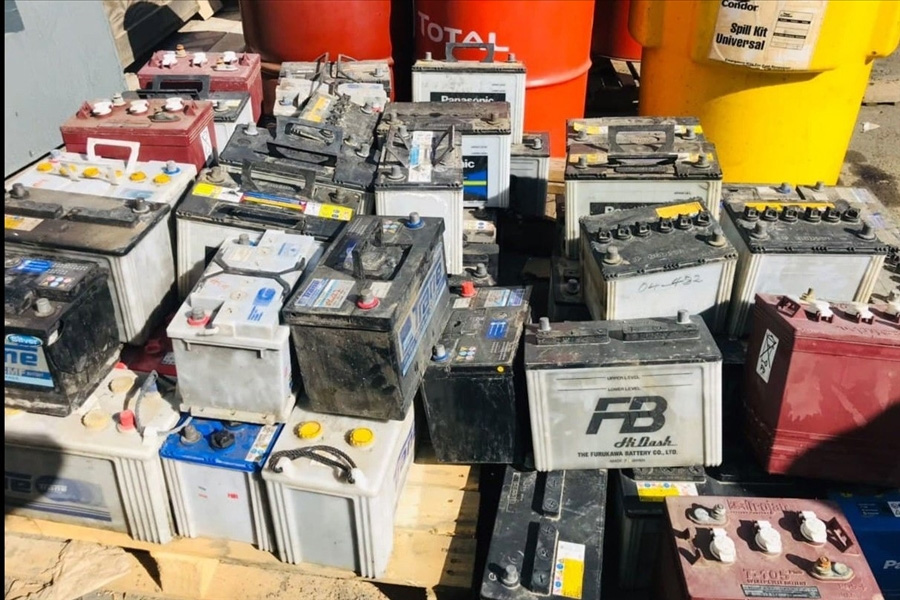
Radar | Aug 11,2024
Aug 10 , 2024
By Yemanebrhan Kiros
Energy wastage can be a black hole for company resources. By controlling the cost component of energy consumption, businesses can create awareness and approve economically viable measures and alternative energy sources. They can control energy wastage, translate it into financial gains, and extend the life of their equipment. The first step? View energy as a quantifiable, manageable resource, not just an overhead cost, writes Yemanebrhan Kiros (yomemech@gmail.com), manager at Yomener Energy Auditing & Engineering Plc.
In today's fiercely competitive business world, where environmental regulations are becoming increasingly stringent, implementing energy management systems has emerged as a tool for achieving rapid and sustained financial gains.
Modern industries need to recognise that energy is quantifiable and controllable. This realisation is becoming critical as environmental pressures from advocacy groups and governmental bodies urge industries to limit their carbon emissions and other potentially harmful wastes. Coupled with the ever-rising fuel prices and impending electricity cost revisions, these pressures will impact the business environment, particularly within the manufacturing industry and service sectors.
Industries should implement energy management systems, which can be customised to meet an industry's specific needs for optimal outcomes. Analogous to other resources such as human expertise, raw materials, and land, energy can be controlled and quantified. Its managers are traditionally responsible for measuring, quantifying, and managing resources. Yet, these roles are severely underrepresented in Ethiopian industries, with businesses commonly viewing energy costs as general manufacturing or overhead costs, a misguided approach.
Interestingly, the correlation between economic advancement and energy consumption is not restricted to manufacturing industries.
Developments within the service industry, including the evolution of hotels, hospitals, and commercial buildings, demand the more frequent installation of high-tech devices for improved applications, convenience, and habitability. In essence, as we continue to achieve economic growth, we consequently drive an upsurge in the installations of electrical and mechanical systems, which invariably require more energy.
Consequently, these facility's basements and rooftops are becoming increasingly crowded, often requiring more space and energy than initially anticipated. This demonstrates the direct link between economic development and energy consumption; the more we develop, the more energy we consume, and vice versa.
Building codes demand more installations and mechanical system footprints, making them mandatory for construction approval by the authorities. Hence, older and new buildings are becoming distinctly different, with the latter requiring more technological solutions like water pumps, ventilation, heating, cooling systems, and fire alarms. These system additions not only exacerbate a building’s energy demand but also seriously affect power quality, particularly electrical energy. Safeguarding power quality is as vital as ensuring access to power; otherwise, equipment malfunction and premature failure can occur, leading to early equipment and production machinery retirement.
The role of an energy manager, currently absent in most facilities across cities, towns and industries, should be to control energy consumption, emissions, and power quality. The absence manifests substantial wastage and unnecessary energy consumption. A storekeeper or a security personnel cannot manage energy; a different approach is needed.
When implementing an energy management system, it might be helpful to focus on controlling the cost component of its consumption, rather than the actual energy consumption. This could be translated into the cost per production unit, which executives can easily understand and act upon. By creating awareness that energy can be measured and controlled, economically viable measures, alternative energy sources, and renewables can be approved easily, along with their associated costs.
Energy management principles suggest that its functions should be controlled and reported as production costs, rather than general manufacturing or overhead costs. This would allow identifying products with high-energy function costs, offering opportunities for potential reductions or technological input considerations.
Cost control of energy functions may reveal the effect of production scales on overall consumption trends. It is always advisable to control and meter the main energy functions in a system, ensuring efforts are concentrated for beneficial reductions in energy consumption. Many manufacturing industries have only one meter in their main distribution system. However, sub-metering the main functions could provide a more valuable means of controlling energy consumption and costs. The cost of metering and sub-metering is generally a tiny fraction of the potential energy cost savings, allowing for considerable cost reductions and planning for consumption reduction.
Despite the widespread notion among many engineers and executives that energy wastage is substantial, the critical missing element is the know-how and disciplined action needed to reap the benefits of reduced energy consumption. Its reduction can be translated into financial gains and extended service life of manufacturing equipment.
PUBLISHED ON
Aug 10,2024 [ VOL
25 , NO
1267]


Radar | Aug 11,2024

Commentaries | Apr 26,2019

Commentaries | Aug 30,2025

Viewpoints | Sep 23,2023

Obituary | Jun 15,2025

Featured | Oct 05,2025

Radar | Feb 05,2022

Radar | Jul 01,2023

Fortune News | Dec 15,2024

Fortune News | Jul 07,2024

Photo Gallery | 178345 Views | May 06,2019

Photo Gallery | 168546 Views | Apr 26,2019

Photo Gallery | 159337 Views | Oct 06,2021

My Opinion | 137067 Views | Aug 14,2021
Commentaries | Oct 25,2025

Dec 22 , 2024 . By TIZITA SHEWAFERAW
Charged with transforming colossal state-owned enterprises into modern and competitiv...

Aug 18 , 2024 . By AKSAH ITALO
Although predictable Yonas Zerihun's job in the ride-hailing service is not immune to...

Jul 28 , 2024 . By TIZITA SHEWAFERAW
Unhabitual, perhaps too many, Samuel Gebreyohannes, 38, used to occasionally enjoy a couple of beers at breakfast. However, he recently swit...

Jul 13 , 2024 . By AKSAH ITALO
Investors who rely on tractors, trucks, and field vehicles for commuting, transporting commodities, and f...

Oct 25 , 2025
The regulatory machinery is on overdrive. In only two years, no fewer than 35 new pro...

Oct 18 , 2025
The political establishment, notably the ruling party and its top brass, has become p...

Oct 11 , 2025
Ladislas Farago, a roving Associated Press (AP) correspondent, arrived in Ethiopia in...

Oct 4 , 2025
Eyob Tekalegn (PhD) had been in the Governor's chair for only weeks when, on Septembe...

Oct 25 , 2025 . By YITBAREK GETACHEW
Officials of the Addis Abeba's Education Bureau have embarked on an ambitious experim...

Oct 26 , 2025 . By YITBAREK GETACHEW
The federal government is making a landmark shift in its investment incentive regime...

Oct 29 , 2025 . By NAHOM AYELE
The National Bank of Ethiopia (NBE) is preparing to issue a directive that will funda...

Oct 26 , 2025 . By SURAFEL MULUGETA
A community of booksellers shadowing the Ethiopian National Theatre has been jolted b...